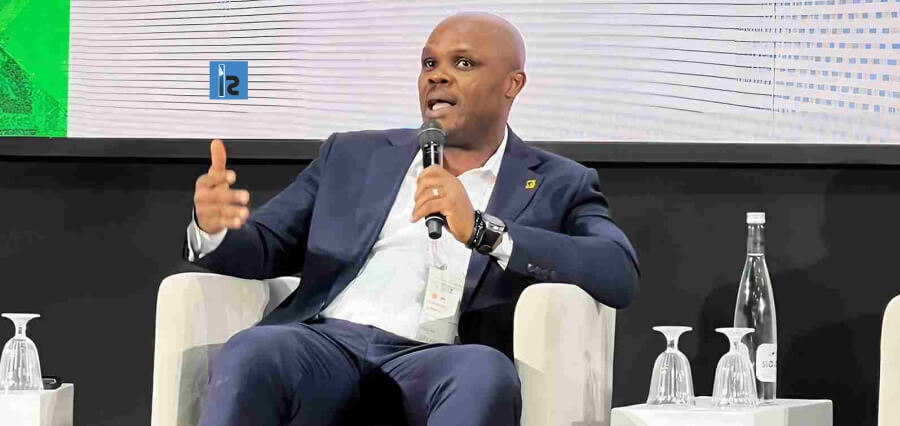In an interview with Insights Success Thomas Lichtenberger, the CEO of Festo Didactic Inc. introduces us to his organization, which is one of the first automation companies to collaborate with U.S. high schools, colleges and universities in order to better prepare students for emerging careers in technology and design engineering.
Festo provides industrial and education partners with the support they need through post-secondary apprenticeship programs, blended STEM curriculum, state-of-the-art engineering systems and lab equipment that resemble real Smart Factories, and through sponsored vocational competitions and summer camps.
Below are the highlights of the interview between Thomas and Insights Success:
What is your definition of Festo? And what was the inspiration that led to the inception of the company?
Festo Didactic is a leading provider of technical education equipment and training. Our educational solutions evolved from a world-class automation and engineering division and integrates the latest trends in each learning system it offers. The innovative product range allows educators and trainers to equip their classroom with the technology they need, from individual workstations to complete Learning Factories, as well as training and consulting, eLearning, courseware solutions, and LMS integration.
We have built over 100 years of trust providing high quality German engineering. Festo is a family-run company that has grown to become a worldwide supplier in 176 countries, serving 300,000 customers across 35 industries, including brand name partners and government institutions. We leverage our expertise in the industrial sector to create holistic learning environments and workforce development training for middle school, high school and college students.
Would you kindly elaborate on your company’s innovative services, solutions and their benefits to your customers?
For over 40 years, Festo Didactic has prepared students in North America for in-demand jobs in a complex industrial environment. We provide colleges and universities with top-of-the-line simulated Smart Factories to develop the advanced manufacturing workforce of tomorrow. Ours was one of the first automation companies to foster collaboration with North American institutions for Industry 4.0 career readiness.
The Festo Didactic product and service portfolio offers solutions for rapid learning and retention in the entire spectrum of automation technologies: pneumatics, electropneumatics, hydraulics, electrohydraulics, electronics, electrical engineering, sensors, robotics, CNC technology, PLC and fieldbus technology, manufacturing technology, and process engineering as well as mechatronics.
Festo Didactic products combine theoretical knowledge with practical experience in automation and technology. Intuitive and fast learning is achieved through practical learning systems and learning factories, which makes the technologies and processes used in industrial production, immediately tangible and illustrate them in an understandable way. People in training are able to use these systems to gather the real, practical experience that they need to work independently in industry, and quickly contribute to a company’s productivity.
What is your take on the current landscape of the Robotics and Automation industry, and what does their potential hold, in the future?
Introducing advanced manufacturing and robotics programs into schools at an earlier age is a crucial piece to solving the STEM skills shortage. Teaching students to work alongside robots and how to operate them won’t be limited to industrial environments. It’s hard to imagine jobs in the future that won’t have an element of automation or IoT/IIoT integration. Our current reality, and future reality, is a highly digital world where the pace of change and frequent market disruptions will require workers to be nimble and learn how to adapt quickly to these changes.
What does Festo’s future roadmap include, in terms of expansion, innovation and development?
The Festo Industry Certification Program (FICP), our new comprehensive industry skills certification, is based on industry and education partnerships to ensure students have the right set of skills to be industry ready. FICP evolved from our global industrial automation division and technical education experience over the past six decades.
The Mechatronics Apprenticeship Program was established by Festo Didactic to address the workforce skills gap in Advanced Manufacturing. MAP is designed to help individuals learn advanced manufacturing skills from employer partners while they earn an associate’s degree in mechatronics in partnership with Sinclair Community College in Mason, Ohio. The program’s mission is to help employers develop skills that are missing in today’s workforce by combining theoretical education with hands-on and on-the-job training.
Bionics4Education is an innovative learning environment offering a range of projects inspired by nature. This technology connects familiar, nature-based activities with complex robotics and engineering in project-based learning experiences that increase accessibility and comprehension for student learners. This innovative learning model allows students to gain important 21st century skills including creativity, innovation, and problem solving. Teaching students to see the world differently, Bionics4Education helps students draw upon and synthesizes knowledge from different disciplines to develop a solution.
About the CEO
For over two decades, Thomas Lichtenberger has dedicated his career to advancing the global automation industry. As the CEO of Festo Didactic Inc., Thomas is responsible for all market and sales activities in North America. A passionate advocate for career and technical education, Thomas is committed to closing the STEM skills gap, improving workforce development, and Industry 4.0 career readiness.
Prior to joining Festo, Thomas served as President and CEO for Festo Canada, where he oversaw all business activities of the automation market. He led the transformation into a profitable and successfully focused company that became the market leader in Canada. Before he moved to Canada in 2008, Thomas had several senior management positions in Festo’s headquarters in Germany.
Thomas holds an executive MBA from the Graduate School of Business Administration in Zurich and a BS in Electrical Engineering from the University of Applied Science in Karlsruhe, Germany.



















